Buy 3-Day Intensive Training-Cognitive Behavioral Therapy for Insomnia (CBT-I)-Evidence-based Insomnia Interventions for Trauma, Anxiety, Depression, Chronic Pain, TBI, Sleep Apnea and Nightmares – Meg Danforth, Colleen E. Carney Course at GBesy. We actively participate in Groupbuys and are committed to sharing knowledge with a wider audience. Rest assured, the quality of our courses matches that of the original sale page. If you prefer, you can also buy directly from the sale page at the full price (the SALEPAGE link is directly provided in the post).
3-Day Intensive Training-Cognitive Behavioral Therapy for Insomnia (CBT-I)-Evidence-based Insomnia Interventions for Trauma, Anxiety, Depression, Chronic Pain, TBI, Sleep Apnea and Nightmares by Meg Danforth, Colleen E. Carney,
Salepage link: At HERE. Archive:
- Faculty:
- Meg Danforth | Colleen E. Carney
- Duration:
- 18 Hours 54 Minutes
- Format:
- Audio and Video
- Copyright:
- Mar 14, 2018
Description
Watch this breakthrough Cognitive Behavioral Therapy for Insomnia (CBT-I) Intensive Training to develop core competencies and master the art of applying CBT-I to a variety of clinical populations!
You’ll get effective clinical techniques from two of today’s leading CBT-I treatment innovators, Colleen E. Carney, Ph.D. and Meg Danforth, Ph.D., who will share their insight and techniques. Join in for this revolutionary course as both reveal the latest advances in CBT-I to get the skills you need to succeed.
You will be able to utilize concrete strategies that will provide greater healing for your clients who suffer from:
- Anxiety
- Trauma
- TBI
- Nightmares
- Depression
- Chronic pain
- Sleep apnea
Discover evidence-based strategies to help your clients increase energy during the day, sleep more deeply, and re-initiate sleep after hot flashes, panic attacks or nightmares. The strategies that you will add to your toolbox can be easily integrated into existing treatment for depression, chronic pain, trauma and anxiety.
Through case studies, interactive discussions, examples of sleep logs, and reproducible handouts, you will take away practical CBT-I strategies to use immediately with any client. Finish this certificate course armed with tools you can use in your very next session.
Handouts
| Manual (9.2 MB) | 110 Pages | Available after Purchase | |
| Extra Handout (2.22 MB) | 23 Pages | Available after Purchase | |
| Day 1 B/W slides (5.69 MB) | 95 Pages | Available after Purchase | |
| Day 2 B/W slides (4.40 MB) | 73 Pages | Available after Purchase | |
| Day 3 B/W slides (11.63 MB) | 102 Pages | Available after Purchase |
Outline
- DAY 1: Assessment and the Basics of CBT-I
- Assessment
- Goals of assessment
- Clinical tools for assessing insomnia
- Screen for other sleep disorders
- When to make a referral to a sleep clinic
- Contraindications for CBT-I
- Sleep and its Regulation
- Normal sleep architecture
- Two-process model of sleep: Circadian rhythm and sleep drive
- The arousal system
- What causes chronic insomnia?
- Key perpetuating factors for chronic insomnia
- Behaviors that interfere with “buildup” of sleep drive
- Behaviors that interfere with the optimal timing of sleep
- Conditioned arousal and physiological/ cognitive hyperarousal
- Perpetuating factors and CBT-I
- Step-by-Step Guide to CBT-I: Stimulus Control and Sleep Restriction Therapies
- Stimulus Control (SC): Addressing conditioned arousal
- Rules for re-associating the bed with sleep
- Identify and overcome potential obstacles to adherence
- Sleep Restriction Therapy (SRT): Restoring the sleep drive
- How to present rationale
- Calculate time-in-bed prescription
- Placing the time-in-bed window
- Identify and overcome potential obstacles to adherence
- Sleep extension
- Combining SC and SRT
- The myth of sleep hygiene
- Stimulus Control (SC): Addressing conditioned arousal
- Step-by-Step Guide to CBT-I: Cognitive Therapy and Counter-arousal
- Counter-arousal strategies: Quieting an active mind
- Establishing a buffer zone
- Processing strategies (including constructive worry and rumination strategies)
- Mindfulness and relaxation therapies
- Cognitive therapy: Identify and change distorted thoughts about sleep
- Thought Records
- Behavioral Experiments
- Socratic Questioning
- Counter-arousal strategies: Quieting an active mind
- Implementation Issues
- Models of Delivery
- Four session individual therapy format
- Seven session group therapy format
- Single session CBT-I
- CBT-I and hypnotic medication
- Practice guidelines: CBT-I as first line treatment for chronic insomnia
- Combining CBT-I with sleep medication
- Positive and negative effects of sleep medications
- Use of ineffective sleep medications
- Promote non-contingent use of sleep medication
- Strategies to support hypnotic discontinuation
- Models of Delivery
- Assessment
- DAY 2: Delivering CBT-I in the Context of Comorbidities
- Depression
- CBT-I and MDD
- Troubleshooting adherence in depressed patients
- Anhedonia
- Sleep or bed as avoidance
- Fatigue and fatigue management strategies
- Rumination in depression
- Case examples
- Sleep and antidepressants
- Anxiety
- Sleep effort: Core target of CBT-I
- Covert manifestations of sleep effort
- Cognitive restructuring of sleep anxiety
- Paradoxical Intention
- Troubleshooting adherence with anxious clients
- When SRT/SC increase anxiety
- Counter control and sleep compression
- High sleep anxiety vs high arousal
- Panic Disorder and nocturnal panic
- OCD and CBT-I
- Sleep effort: Core target of CBT-I
- Trauma
- Sleep and PTSD
- CBT-I trials in PTSD
- Behavioral targets in clients with insomnia vs PTSD
- Common treatment challenges in clients with PTSD
- Nightmares and nightmare treatments
- Traumatic Brain Injury (TBI)
- Comorbid TBI
- Sleep and TBI
- Efficacy of CBT-I in mild TBI (mTBI)
- Modify insomnia treatment for mTBI
- Comorbid TBI
- Chronic Pain
- Efficacy of CBT-I for those with chronic pain
- Chronic pain and stimulus control
- Common treatment challenges in clients with chronic pain
- Pain medications and other considerations
- Hypnotic Discontinuation
- Combined guided hypnotic taper approach
- Factors sustaining hypnotic dependence
- Unhelpful beliefs
- Learning
- Strategies to support client during hypnotic taper
- Psychoeducation about psychological dependence and rebound insomnia
- Cognitive therapy to target unhelpful beliefs
- Sample taper schedules
- Depression
- DAY 3: Co-Occurring Sleep Disorders and Advanced Case Formulation
- Co-Occurring Sleep Apnea
- Obstructive sleep apnea (OSA)
- Morbidity and mortality of OSA
- Relationship of nocturia and OSA
- Sleep apnea treatments
- Obstacles to treatment adherence
- Physical comfort
- Mechanical problems
- Social and other factors
- Psychological factors
- Improve adherence
- Work with stages of change
- Respond to common concerns
- CPAP desensitization for claustrophobia
- Treating insomnia in patients with comorbid OSA
- Obstructive sleep apnea (OSA)
- Circadian Rhythm Sleep Disorders
- Using light to leverage circadian timekeeper
- “Exogenous” circadian challenges
- Cope with shift work
- Adjust to jet lag
- “Endogenous” circadian disorders: Advanced and delayed sleep phase
- Phototherapy for delayed sleep phase
- Imagery Rehearsal Therapy for Nightmares
- Nightmares and nightmare disorder
- Differential diagnosis
- Assessment
- Self-monitoring via nightmare log
- Combine nightmare log and sleep diary
- Imagery Rescripting and Rehearsal
- Psychoeducation and rationale
- Nightmares and trauma
- Shaping imagery skills
- IRT steps
- Prazosin for nightmares
- Nightmares and nightmare disorder
- Advanced Case Formulation in CBT-I
- Case conceptualization: Asking the right questions
- Case Formulation Form
- Factors weakening sleep drive
- Factors weakening the clock
- Evidence of hyperarousal
- Unhelpful sleep behaviors
- Comorbidities
- Case Examples
- Co-Occurring Sleep Apnea
Faculty
Meg Danforth, Ph.D., CBSM Related seminars and products: 3
Meg Danforth, Ph.D., CBSM, is a licensed psychologist and certified behavioral sleep medicine specialist who provides advanced clinical care to patients with sleep disorders and comorbid medical and mental health issues. She is a clinician and educator at Duke University Medical Center in Durham, NC. As the Director of the Duke Behavioral Sleep Medicine Clinic, she has been helping people sleep better without medication for the past 15 years. She also provides clinical training and supervision to psychology graduate students, interns, and fellows. Dr. Danforth is committed to teaching clinicians from a variety of backgrounds to deliver CBT-I in the settings in which they practice. Her work has been featured in the Associated Press and CBS News.
Speaker Disclosures:
Financial: Margaret Marion Danforth is a clinical associate at Duke University Medical Center. She receives a speaking honorarium from PESI, Inc.
Non-financial: Margaret Marion Danforth is a member of the Association for Behavioral and Cognitive Therapies.
Colleen E. Carney, Ph.D. Related seminars and products: 5
Colleen E. Carney, Ph.D., is on faculty in the Department of Psychology at Ryerson University, where she is director of the Sleep and Depression Laboratory. She is a leading expert in psychological treatments for insomnia, particularly in the context of co-occurring mental health issues. Her work has been featured in The New York Times and she has over 100 publications on insomnia.
She frequently trains students and mental health providers in CBT for Insomnia at invited workshops throughout North America and at international conferences. Dr. Carney is a passionate advocate for improving the availability of treatment for those with insomnia and other health problems. For more information, please visit www.drcolleencarney.com.
Speaker Disclosure:
Financial: Colleen Carney is a professor at Ryerson University. She receives a speaking honorarium from PESI, Inc.
Non-financial: Colleen Carney is a member of the Canadian Psychological Association; and the Association for Behavioural and Cognitive Therapies (ABCT).
Buy the 3-Day Intensive Training-Cognitive Behavioral Therapy for Insomnia (CBT-I)-Evidence-based Insomnia Interventions for Trauma, Anxiety, Depression, Chronic Pain, TBI, Sleep Apnea and Nightmares – Meg Danforth, Colleen E. Carney course at the best price at GBesy.. After your purchase, you will get access to the downloads page. You can download all the files associated in your order at here and we will also send a download notification email via your mail.
Unlock your full potential with 3-Day Intensive Training-Cognitive Behavioral Therapy for Insomnia (CBT-I)-Evidence-based Insomnia Interventions for Trauma, Anxiety, Depression, Chronic Pain, TBI, Sleep Apnea and Nightmares – Meg Danforth, Colleen E. Carney courses. our courses are designed to help you excel.
Why wait? Take the first step towards greatness by purchasing 3-Day Intensive Training-Cognitive Behavioral Therapy for Insomnia (CBT-I)-Evidence-based Insomnia Interventions for Trauma, Anxiety, Depression, Chronic Pain, TBI, Sleep Apnea and Nightmares – Meg Danforth, Colleen E. Carney courses today. We offer a seamless and secure purchasing experience, ensuring your peace of mind. With our trusted payment gateways, Stripe and PayPal, you can confidently complete your transaction knowing that your financial information is protected.
Stripe, known for its robust security measures, provides a safe and reliable payment process. With its encrypted technology, your sensitive data remains confidential throughout the transaction. Rest assured that your purchase is protected.
PayPal, a globally recognized payment platform, offers an additional layer of security. With its buyer protection program, you can feel confident in your purchase. PayPal ensures that your financial details are safeguarded, allowing you to focus on your learning journey.
Is it secure? to Use of?
- Your identity is completely confidential. We do not share your information with anyone. So it is absolutely safe to buy the 3-Day Intensive Training-Cognitive Behavioral Therapy for Insomnia (CBT-I)-Evidence-based Insomnia Interventions for Trauma, Anxiety, Depression, Chronic Pain, TBI, Sleep Apnea and Nightmares – Meg Danforth, Colleen E. Carney course.
- 100% Safe Checkout Privateness coverage
- Communication and encryption of sensitive knowledge
- All card numbers are encrypted using AES at relaxation-256 and transmitting card numbers runs in a separate internet hosting atmosphere, and doesn’t share or save any data.
How can this course be delivered?
- After your successful payment this “3-Day Intensive Training-Cognitive Behavioral Therapy for Insomnia (CBT-I)-Evidence-based Insomnia Interventions for Trauma, Anxiety, Depression, Chronic Pain, TBI, Sleep Apnea and Nightmares – Meg Danforth, Colleen E. Carney course”, Most of the products will come to you immediately. But for some products were posted for offer. Please wait for our response, it might take a few hours due to the time zone difference.
- If this happens, please wait. The technical department will process the link shortly after. You will receive notifications directly by e-mail. We appreciate your wait.
What Shipping Methods Are Available?
- You will receive a download link in the invoice or YOUR ACCOUNT.
- The course link always exists. use your account to login and download the 3-Day Intensive Training-Cognitive Behavioral Therapy for Insomnia (CBT-I)-Evidence-based Insomnia Interventions for Trauma, Anxiety, Depression, Chronic Pain, TBI, Sleep Apnea and Nightmares – Meg Danforth, Colleen E. Carney course whenever you need.
- You only need to visit a single link, and you can get all the 3-Day Intensive Training-Cognitive Behavioral Therapy for Insomnia (CBT-I)-Evidence-based Insomnia Interventions for Trauma, Anxiety, Depression, Chronic Pain, TBI, Sleep Apnea and Nightmares – Meg Danforth, Colleen E. Carney course content at once.
- You can do your learning online. You can be downloaded for better results and can study anywhere on any device. Make sure your system does not sleep during the download.
How Do I Track Order?
- We always notice the status of your order immediately after your payment. After 7 days if there is no download link, the system will automatically complete your money.
- We love to hear from you. Please don’t hesitate to email us with any comments, questions and suggestions.
![GBesy [GB] GBesy [GB]](https://www.gbesy.com/wp-content/uploads/2023/05/gbesy-Logo-full-100.png)
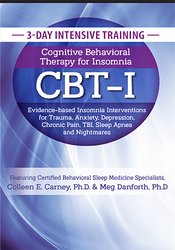


 Purchase this course you will earn
Purchase this course you will earn 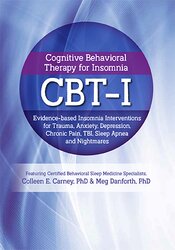
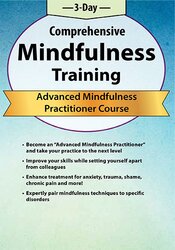
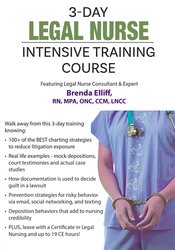
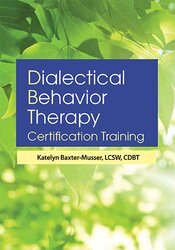
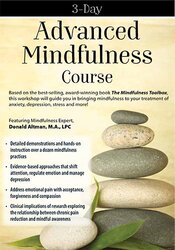
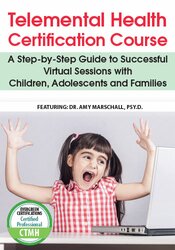
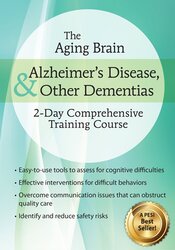
Reviews
There are no reviews yet.